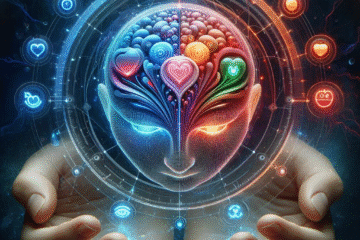Lesallan | May 18, 2025

Divine Harmony: Exploring God’s Love Through Music and Redemption
My assertion (Lesallan, 2025) is that “God loves music and evil people” encapsulates two profound theological themes explored by scholars and theologians throughout history: the divine appreciation for music and the intricate nature of humanity. These themes provide insight into the broader spectrum of faith, music’s role in spirituality, and the complex nature of redemption.
Scripture consistently documents divine praise for music, portraying it as a sacred gift designed to enhance worship and enrich human experience. Bible Study Tools (2021) states, “Music is a powerful tool that connects us with God and strengthens our faith through worship and praise.” From the vibrant melodies of the Psalms to the harmonious anthems of liturgical traditions, music is a universal language that transcends cultural barriers, fostering a connection between the divine and humanity.
The role of music is notably recognized in biblical figures such as Jubal and King David. In Genesis 4:21 (NIV), Jubal is identified as “the father of all who play the lyre and pipe” (New International Version [NIV], 2011). This reference signifies the importance of music in early human culture and its intrinsic connection to creativity and expression. Similarly, in 1 Samuel 16:23 (NIV, 2011), David plays the lyre to soothe King Saul, highlighting music’s therapeutic properties and its power to foster spiritual communion. As Bible Study For You (2025) states, “David’s music brought peace to Saul’s troubled soul, demonstrating the spiritual and emotional healing power of sound.”
Conversely, acknowledging that “evil people” are also loved by God invites reflection on the complexity of human nature. This duality underscores a key theological concept: the capacity for both good and evil within individuals. Religious teachings advocate the transformative power of grace and redemption, suggesting that even those who have strayed from moral paths can find their way back to divine favor.
John 3:16 (NIV, 2011) encapsulates this inclusive grace, affirming that “God so loved the world that he gave his one and only Son, that whoever believes in him shall not perish but have eternal life.” Much like music serves as an avenue for spiritual connection, divine love is a force capable of renewal. Paul (2025) expands on this by stating, “God’s love does not exclude anyone—His grace is extended to all, regardless of their past actions.”
The interconnected nature of music, divine love, and human experience encourages a more profound understanding of faith. By recognizing both the beauty of music and the potential for redemption within all individuals, believers can begin to grasp the vastness of God’s love. Music is not merely an auditory experience but a conduit for worship, emotional healing, and personal transformation.
This perspective invites reflection on how music bridges joy and sorrow, and how divine love embraces the entirety of human existence. This exploration urges believers to extend grace to themselves and others, fostering a compassionate worldview that values creative expression and spiritual redemption.
Blessings,
Lesallan
References:
Bible Study Tools. (2021, July 23). 27 best Bible verses about music: Scripture on the gift of song. https://www.biblestudytools.com/topical-verses/bible-verses-about-music/
Bible Study For You. (2025, February 11). 30 powerful Bible verses about music (full commentary). https://biblestudyforyou.com/bible-verses-about-music/
New International Version. (2011). Biblica, Inc.
Paul, A. (2025). 30 most inspiring Bible verses about music. PrayerLit. https://prayerlit.com/bible-verses-about-music/


